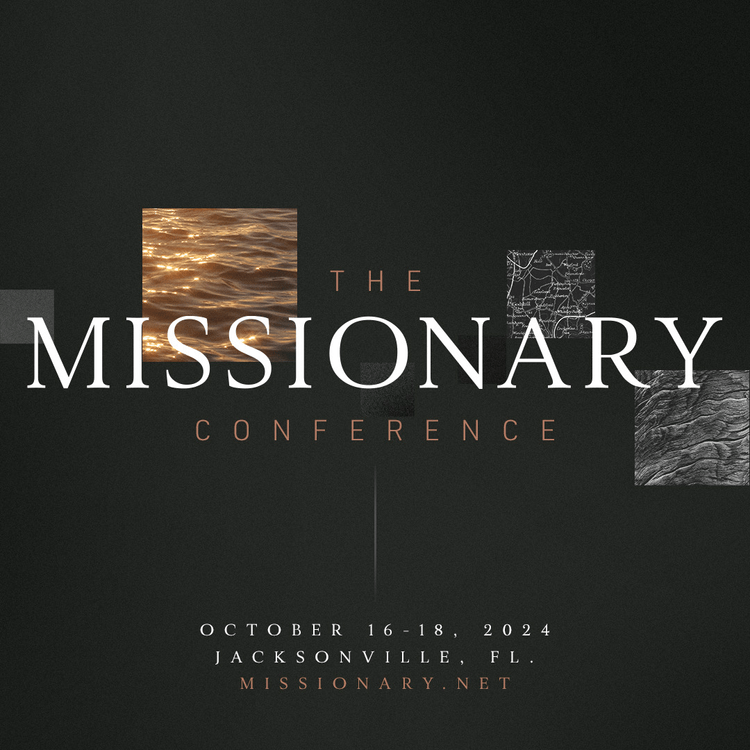*This article was originally written for Radius International in 2016.
Since attending the Disciple Making Movement (DMM) Level 1 two years ago – which I thoroughly enjoyed – I have been wrestling with how to apply DMM to our context and our work. I want to share a bit of my experience:
It has been difficult to permit myself not to look at DMM as a package deal – ‘take it or leave it’ – but rather as a multifaceted methodology which I am free to implement to a greater or a lesser extent depending on my convictions and my context. As a team, we have spent over six months studying Scripture about DMM, and throughout I have felt the pressure that we should not deviate from DMM practices. It has sometimes taken team members to ‘shake me out of it’ – to challenge me Scripturally about why I am stubbornly holding on to certain aspects of DMM without justification. It has been a significant struggle to get to the place where I can say to myself ‘it’s OK to not follow DMM 100%’ – and I wonder why this is?
Theology?
Initially, I thought that the reason was theological: “DMM already is profoundly Scriptural, so not to follow it means not following a clear and simple reading of Scripture”; i.e. to reject any aspects of DMM would be tantamount to rejecting Scripture. But this is absurd. DMM, like all other methods, has a strong Scriptural foundation, but contrasting interpretations of Scripture exist and DMM also leans heavily on sociology. For example, many of DMM’s ’23 critical elements’ are drawn from sociology or educational theory, not from scripture. These include observations about how movements reproduce, how to reach out to all segments of society, how groups function together, how education and learning happens, etc. They can be legitimated in Scripture (i.e. it’s OK to do this) but they cannot be derived from Scripture (i.e. we must do this). DMM relies on many sociological insights and this is fine, so long as we retain a right perspective about from where these aspects are derived and so long as we do not erroneously attribute them back to Scripture, i.e. reading them into Scripture with a pre-determined bias. I realized that this is what I was doing – I wanted to defend DMM and so had got into the habit of looking at the Bible through DMM lenses rather than looking at DMM through Biblical lenses. This is dangerous territory for any Christian to be in.
I realized this when as a team we were engaging with Scripture over a particular aspect of DMM, and a team member presented a strong argument from Scripture, which stood at odds with DMM methodology. It was compelling, and I agreed with his reasoning and with his conclusion – I had no counter-argument to offer – and yet I remained unwilling to accept it, and felt a compulsion to defend the DMM position, even though I had no Scriptural basis with which to do this. This revealed to me that unknowingly I had ‘bought in’ to DMM in such a way as to hold on to it even when faced with a clear and compelling challenge from Scripture – something that all DMM practitioners would express serious concern at (‘where did you get that from Scripture?’). But I had unwittingly subordinated Scripture to my own convictions about pursuing a particular methodology, and I was blind to consider alternatives. This is dangerous, but perhaps not surprising – because the DMM branding is very compelling. Ironically the very principles that DMM expounds (focus on Scripture) have been undermined by the strength of branding that DMM has enjoyed in our agency, which may render us inflexible to Scriptural critique. It provoked in me once again the question I mentioned above: why am I holding on so tightly to DMM?
Apostolic?
Another possible reason is perhaps out of a desire to be ‘apostolic’. The way in which DMM is presented in our groups – through these forums and our interactions and training – is that it is the ‘cutting edge’ of where we are at. The message is clear: DMM is the direction we are going in, and there has been a cry of ‘all aboard’ and we don’t want to miss the boat. To critique DMM may be perceived to be unapostolic and unstrategic, and can come across as not being serious about advancing God’s kingdom. But this is not true – a truly apostolic approach is to show concern for Scriptural truth and to found our lives and our ministry on the Apostles’ teaching in Scripture. And yet I do feel this pressure somewhat to buy into DMM, and this can discourage diligent and earnest inquiry towards Biblical methodology. But even though this is a consideration, I don’t think that it is the critical factor – the reason why the DMM brand is something I hold on to so tightly is closer to home and more problematic:
Promises
I have realized that my unwillingness to critique DMM was not born out of theological convictions, or out of pressure from our regional leadership to pursue it, but rather out of more personal motivations: it has to do with promises I have taken up that I am not willing to lay down again. And this pertains to the strong statements that DMM uses. Several times during my level 1 training examples were cited of where a certain team followed all but one of DMM’s critical elements, and that once this final ingredient was added, catalysis occurred and the movement began. DMM’s branding makes extensive use of these before and after stories, and the repetition of these stories creates a narrative with an implicit promise. David Watson told us that failure to follow any one of the DMM principles will mean failure to catalyze a movement properly. This is an ‘all or nothing’ condition, with a lot at stake. All of us want to see God’s Kingdom come in our midst, hundreds of thousands of Muslims coming to Christ, a transformation of our people groups and our cities and our countries for the powerful message of Jesus. I yearn for a movement to Christ. Whether implicitly or explicitly, DMM promises to deliver this, and not following DMM means failure. (Perhaps naively) I have bought into these promises, and it is my holding on to these promises that renders me unwilling – and unable – to properly critique DMM Scripturally. We should not underestimate the power of a promise to steer us in a particular direction; personally, this has been the strongest pull to DMM: I cannot bear to think that I may no longer be able to participate in the promises that DMM offers. And this makes me a very poor candidate for critically examining DMM in the light of Scripture – we cannot help but come to Scripture with our own subjectivity and worldview, and when these promises are so powerful in my life it will limit my ability to be objective in my reading of Scripture.
I wish I could claim that what attracted me most to DMM was the rational conviction that this was the best Biblical approach. But instead, it is the emotional desire to see Kingdom impact, and the fervor and zeal to take hold of a method that promises this. The DMM training is full of examples of thousands and tens of thousands of churches planted, millions of Hindus and Muslims coming to Christ. It is awesome and awe-inspiring. The sheer weight of these statistics means that (emotionally) it is hard to have a clear head for Biblical critique; the reason I am ‘buying in’ is because I want results. I want DMM to be Biblical because I want its promises to be true because I want to reap the benefits of those promises. But the truth is – and I think most will agree – that DMM cannot make promises about Kingdom fruit – only God can, and only promises found in Scripture are promises worthy of us putting hope in. I want to follow DMM the extent to which it conforms to Scripture, and may this be my motivation rather than hoping in its promises. I am wrestling to submit my motivations once again to Christ – and not to cherish a promise that ‘if I do DMM I will definitely see a movement’. I want to base my strategy on what I see in Scripture rather than promises I see outside of Scripture. I have been tempted to accept DMM because I want the promises, conversely, others have rejected DMM because they don’t believe the promises. Neither of these is helpful. A Biblical critique of DMM requires laying aside our attraction or skepticism about its claims and its promises and engaging in the task of Biblical study. I have found this hard because I love what DMM promises. But the danger of hinging our hopes on these promises is that outside of God’s promises, promises are notoriously fickle and prone to disappoint. We all want to find a strategy founded on Scripture, but we also need to find a promise founded in Scripture. “You will see a movement if you follow this method” just isn’t it.
Summary
I am not seeking to question the content of DMM here, but rather how we are going about questioning it. I am worried that our strong promoting of DMM combined with the strong branding of DMM means we are raising a new generation of workers who know nothing else. One leader noted correctly that groups in our area offer many pieces of training other than DMM. But pertinently we offer no other church planting/movement catalyzing training except DMM. Pushing one strategy as strongly as this risks rendering our CP endeavors one-dimensional and poorly equipped to sharpen one another with different perspectives. Yes: let’s do DMM training. But it should not be the only church planting training we offer, or at very least other methods should be acknowledged and referenced. At the US HQ candidate’s school last week most candidates I talked to didn’t even realize any other methods existed! It is as though we think that before DMM came along no one had a clue about church planting.
Not everything can be easily condensed into a sound bite or an aha moment; no single method can so definitely encapsulate the right way for all times and all places, and no one but God can make certain promises. I love many aspects of DMM and I appreciate the challenge and the dialogue that it has brought to our region. My prayer and yearning is that we all can feel free to not follow DMM as much as we feel free to follow DMM – after all, it is only a man-made method and it offers no promises. With this freedom, we can then take DMM and critique it against Scripture and our contexts and, by God’s grace, become better laborers and harvesters for our efforts. I am convinced such an approach will enable a more nuanced discussion and sharpen one another.
So it’s not just that simple to start a movement? I can’t just follow a checklist and be assured of success? This wakeup call is timely, disorientating and necessary. I would like our region teams to continue to engage in DMM and also to be improving on it, but may we shake ourselves out of any naive thinking which claims to have found a panacea here. There is no such thing. This post is not a critique of DMM but rather a narrative of my own interaction with DMM. I am similar to many others joining our region – young, passionate, and wanting to learn – my sincere hope is that my contemporaries will not be carried along with story-telling at the expense of engaging with the Biblical issues at stake.
Bob
Church Planter, North Africa
Bob and his wife have spent more than 10 years in Africa with a well known Mission Agency. They are currently working in a third language context.




